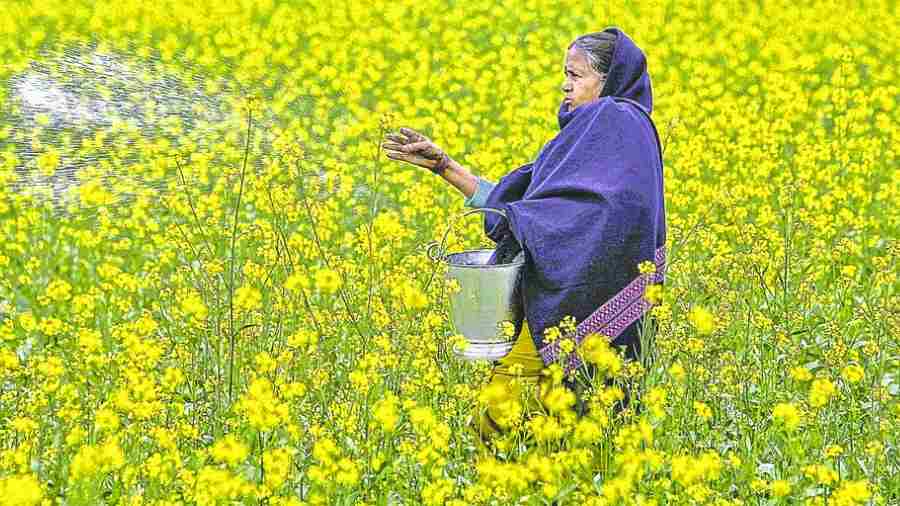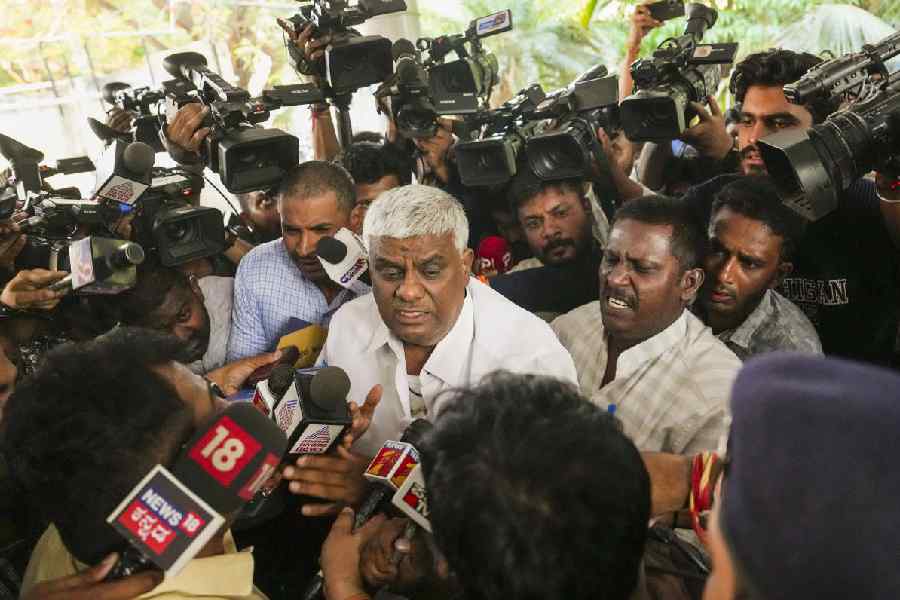A group of farmers and scientists on Friday announced its intention to step up resistance against what they view as the Centre’s moves towards the release of genetically modified mustard for commercial cultivation.
“We will activate all possible democratic and non-violent avenues available to us and ensure that GM mustard planting does not end up being an irreversible, unaccountable misadventure,” the group, which calls itself Sarson Satyagraha, said in a statement.
The Genetic Engineering and Appraisal Committee, a regulatory panel under the Union environment ministry, had last month approved supervised release of GM mustard developed by scientists at the University of Delhi, south campus, for extra field studies and seed development.
Many scientists have applauded the GEAC decision, saying GM mustard — expected to deliver 25-30 per cent higher yields than standard varieties — will help reduce the country’s edible oil import bill and lower agriculture’s environmental footprint in the country.
But members of the Sarson Satyagraha do not agree with those assessments.
“I’m not impressed — what is being promoted is not an environment-friendly approach,” said Satvinder K. Mann, a former plant pathologist at the Punjab Agricultural University. “Such technologies encourage monoculture, which tends to drive evolution of pests towards resistance,” she said.
The group that includes farm organisations as members said Indian farmers already have the option of mustard hybrids that are planted on more than 45 per cent of land cultivated with mustard and claimed that the GM mustard was actually lower yielding than popular varieties and hybrids.
Sarson Satyagraha has claimed that India is nearly self-sufficient in mustard oil production — 2.6 million metric tonnes produced against a demand of 2.8 million metric tonnes. “Just because more mustard oil is produced does not mean citizens from non-mustard regions will shift to this oil,” it said.
The group said its members include Dhiraj Singh, former director of the Indian Council of Agricultural Research directorate of mustard research, Mohini Mohan Mishra of the Bharatiya Kisan Sangh, Yudhvir Singh with the Indian Coordination Committee of Farmers’ Movements, Kapil Shah, an organic farming promoter, Kavitha Kuruganti with the Coalition for a GM-free India, and Subhash Kamboj, representing beekeepers’ in the country.
One objective of the field tests recommended by the GEAC is to evaluate the impact, if any, of GM mustard on bees. Sections of beekeepers have expressed concern that the GM mustard has not been adequately tested for impacts on bees and other pollinators.
The group in its statement said a technical committee, which included government scientists, set up by the Supreme Court had a few years ago called for a moratorium on certain GM crops until the country had improved its capacity for regulatory appraisals.










